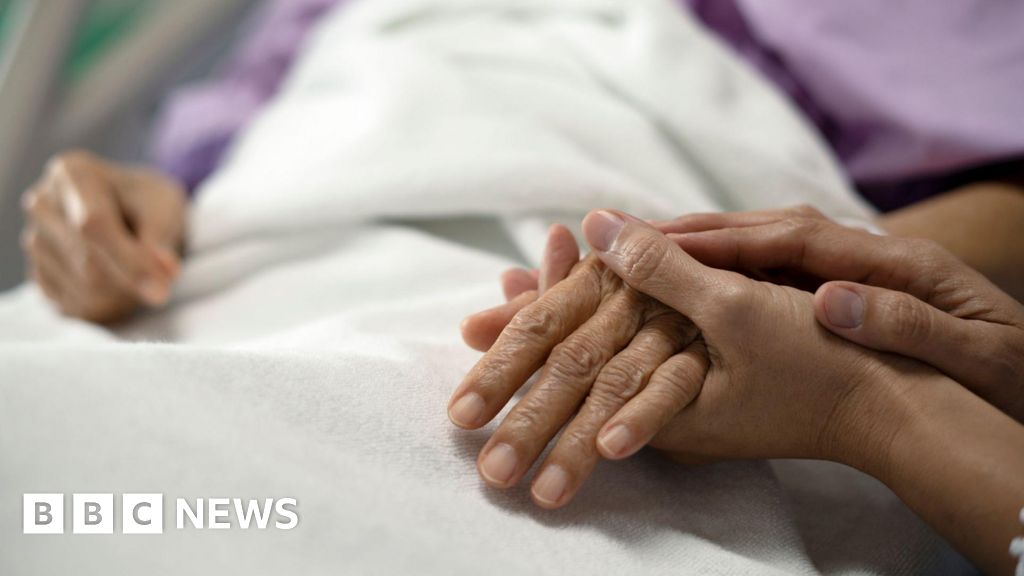What an HPV Diagnosis Really Means
For starters, it does not mean you have cancer—or that you’re destined to develop it.


Being diagnosed with human papillomavirus (HPV) can be upsetting, to say the least. Many people already know about the link between HPV and various forms of cancer. But there’s no reason to freak out, because the diagnosis may not mean what you think it does.
For starters, it does not mean you have cancer—or that you’re destined to develop it.
“The most important thing to know is: HPV is really common—approximately 80% of people are infected with it at some point in their lives,” says Dr. Kathleen Schmeler, a professor of gynecologic oncology and associate vice president of global oncology at the University of Texas MD Anderson Cancer Center. “The majority of people clear it and probably never even know they had it.” Even among those for whom the virus doesn’t go away on its own, “the majority of people don’t go on to get cancer,” Schmeler says. [time-brightcove not-tgx=”true”]
More often than not, women discover they have HPV after having an HPV test and a Pap test to screen for cervical cancer during a pelvic exam. Men can get HPV too, but they often don’t know if they have it unless they develop genital warts and see a doctor about them. “There are no clinical guidelines right now for men to have HPV testing,” says Dr. Rachel Katzenellenbogen, a professor of pediatrics and microbiology and immunology who leads a research lab that studies HPV at the Indiana University School of Medicine.
There are more than 300 types of HPV, and some are more problematic than others. The highest-risk types are HPV 16 and 18; these are responsible for the vast majority of HPV-related cancers, including cancers of the cervix, vagina, vulva, penis, anus, and head and neck. By contrast, HPV types 6 and 11 are considered low risk because they’re not associated with cancer, but they can cause genital warts.
HPV spreads through sexual contact, including direct genital skin-to-skin contact, vaginal intercourse, oral sex, and anal sex . “There are two times when we see a spike in this sexually transmitted infection: under age 25 and after age 45, when people have new sexual partners,” says Dr. Brinda Emu, an associate professor of internal medicine at the Yale School of Medicine.
Even if a woman doesn’t have a new sexual partner, she could suddenly have a positive HPV test—and it doesn’t necessarily mean her partner cheated on her. “HPV can be dormant and not detected for many years,” says Dr. Sarah H. Kim, division director of gynecologic oncology at Penn Medicine. “Then, for whatever reason, it can reactivate and lead to a positive result.”
Why you should get tested
If a woman discovers after a gynecological visit that she has HPV, “the information is important because it tells you how you would follow up with additional tests,” says Emu. “It’s not a cause for alarm—it’s a cause for follow-up. It’s sort of a flag to your physician and yourself to get good screening.”
Some labs will specify whether the highest risk HPV types (16 or 18) are present on a cell sample from the cervix, but others don’t.
The follow-up will depend on multiple factors, including a woman’s age (“the clearance rate is less robust as women get older,” Kim says), whether she’s immunocompromised (after having chemotherapy or because she takes immunosuppressant medications), and whether she smokes. “If you’re diagnosed with HPV, discuss next steps with your doctor,” says Dr. Amanda Fader, a professor of gynecology, obstetrics, and oncology at the Johns Hopkins School of Medicine and current president of the Society of Gynecologic Oncology.
Read More: Why Gut Health Issues Are More Common in Women
If a woman had “co-testing” (a combination of an HPV test and a Pap test) and her Pap smear results were normal but she had a positive HPV test, her doctor might advise her to come back in a year and have both tests again, Schmeler says. Nine out of 10 HPV infections go away on their own within two years, according to the U.S. Centers for Disease Control and Prevention.
(Keep in mind: In some places, the ordering of tests has become flipped: Women have an HPV test first, and if the result is positive, then they have a Pap smear, says Katzenellenbogen.)
If a woman’s HPV infection persists after a year, she may be referred for a colposcopy, a procedure in which a doctor inserts a speculum into the vagina to widen the vagina so they can see the cervix. A vinegar solution is then applied to the cervix to reveal abnormal cells, and the doctor uses an instrument called a colposcope, which has bright lights and a magnifying lens, to closely look at the vagina and cervix. During a colposcopy, the doctor may take a biopsy so that cells can be checked under a microscope for signs of cancer.
If it happens, the progression from HPV infection to cervical cancer usually takes many years. But it’s important to remember that “cervical cancer is entirely preventable if a woman is undergoing appropriate screening,” says Fader. “If precancerous cells are found [on a Pap test or colposcopy], they can be treated effectively”—before they progress to cancer. Treatment options for precancerous cells on the cervix may include a loop electrosurgical excision procedure (LEEP), a cone biopsy procedure, cryosurgery, or laser surgery.
Protective measures you can take
Unfortunately, there’s currently no cure for HPV, and there’s nothing someone can do to try to eliminate it from their body. (There are, however, treatments for genital warts, Fader says.)
And there are things you can do to help reduce your risk of HPV. “Safe sexual practices are important to prevent transmission,” Fader says, but condoms aren’t a guarantee against HPV because the virus can be transmitted by skin areas that aren’t covered by the condom. Smoking is known to impair immune function, so it’s important to kick the habit if you currently smoke, Schmeler says.
Read More: How Much Hair Loss Is Normal for Women?
For some people, the HPV vaccines, which require two or three doses and cover nine different types of HPV, may be an option. Typically given to kids and young adults before they become sexually active, these vaccines are approved for use up to age 45. “Vaccines are preventive and highly effective but not appropriate for treatment and clearance of HPV infection,” says Katzenellenbogen.
“A therapeutic vaccine is being studied in people who’ve been infected with HPV or had precancers,” Fader says. But it won’t be available anytime soon.
In the meantime, some experts say there may be a benefit to getting the vaccine even if you’ve been diagnosed with HPV. “Getting the vaccine could protect you from other strains,” Kim says. Your best bet is to talk to your doctor about whether you’re a good candidate for the HPV vaccine and what else you should know about your personal HPV-related risks.
What's Your Reaction?






















































































































.gif)